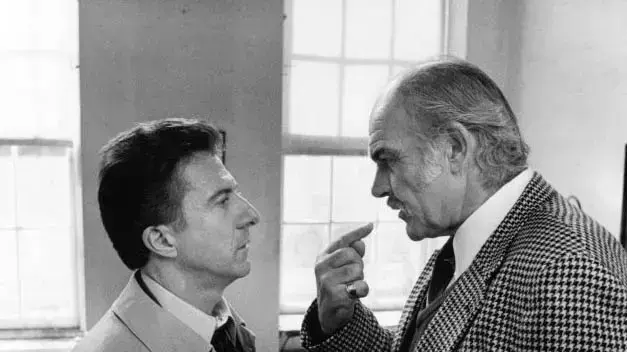Dr. Nava Michael-Zabry. It is no coincidence that she specialized in this niche (Photo: Shiran Carmel)
About 20 years ago, Dr. Nava Michael-Zbari, the granddaughter of the founders of the Strauss Group and the daughter of Raya Strauss, decided to sell her shares in the company, move to the world of academia and focus (not coincidentally) on the field of family business research. Today she is the director of the Raya Strauss Research Center Family businesses at the Kohler faculty of management at Tel Aviv University, and academic director of the family business program in Lahav - executive development.
Just before Family Day, which will take place on February 21, Michael-Zbari, 63, provides some insights regarding businesses whose most characteristic word is complexity.
"In 1995, I participated together with Ofra (Strauss: AS), my cousin, in a workshop in Canada in the field of family businesses in the world," she says. "The first researchers and consultants in the field were there.
I sat there and had a lot of insights.
Today, when I have been teaching a course on this topic to other families for 15 years, I am actually giving them the experience I had in Canada."
What did you experience there?
"When you come from a family business, you are captive to the concept, to the idea that it's only with you, and it's only in your family, and as if everything is terribly special, and everything is because of the personality and character of a mother, or father, or grandfather, or uncle. And actually, in that workshop, I had the insight that there is actually a phenomenon, things that repeat themselves that can be analyzed and understood, and that not everything is a function of the special circumstances and the special personality of the people.
For me, this was an insight from a lifetime. I also think that if you yourself come from a family business and want to engage in research, teaching and consulting, you need to understand the The place you come from, to do some kind of self-work. It took me a while to do this self-work, to understand what we had, what we didn't have, how it was. If there's one word that I think describes what a family business is, it's the word complexity.
After I sold the shares, I decided it was time to do in Israel what I saw in Canada.
We are a 'Start-Up Nation', everyone knows that.
But the field of family businesses talks about 'Continuity Nation' - how do we continue, how do we pass it on to the next generation."
Let's start with the numbers. What is the percentage of family businesses in Israel?
"The situation in Israel is no different from what exists all over the world.
Of the small and medium-sized businesses (for example, a law firm, a grocery store, a garage, etc.) about 90% are family owned.
What really surprises people is when I tell them that even in the biggest businesses in the world, for example if you take the 'S&P 500' list, you see that close to 40% of the businesses are family owned.
In the Israeli stock market, for example, more than 50% are public-family companies.
This is a very high percentage.
The world average in stock exchanges is 30%.
We are a little higher because we are a young country and there are many businesses here that are still in their first generation."
Strauss factory in Karmiel.
realized that there was a phenomenon here (Photo: Flash 90, Michael Giladi)
See family entry
"The definition of a family business," says Michael-Zbari, "is a definition that for 20 years researchers debated about, offered many proposals and did not arrive at a single proposal accepted by all. One of the reasons for this is that today even the definition of a family is very fluid. Regarding family
businesses that are not on the stock exchange, the accepted definition is that the family (which is also the owner) has a significant influence on the management of the company and that there is an intention to pass the business on to the next generation. As for public companies, four years ago we convinced the stock exchange to index the public family companies that are on the stock exchange It's called 'TA Family'.
The Strauss Center defined that a public family company in the Israeli Stock Exchange is one that has at least three family members who work together and also report to the stock exchange, and at least 40% ownership.
These definitions vary from country to country."
According to Michael-Zbari, there is still no organized data collection in Israel regarding the question of whether the number of family businesses in Israel has increased or decreased over the years.
"I really hope to do it," she says.
"All over the world, by the way, it was always thought that perhaps the new, advanced professional management would cause family businesses to disappear from the world. But in practice this is not what is happening. There are places, such as in the UK, where there are almost no family companies on the stock exchange, because there are very difficult conditions for entering the stock market to family companies. There are countries that have more family businesses than other countries, but overall this is a very common phenomenon all over the world."
More in Walla!
B-Cure Laser - Does it help knee pain?
The truth is revealed
Served on behalf of B Cure Laser
"The definition of a family business is a definition that for 20 years the researchers debated about, offered many proposals and did not arrive at a single proposal accepted by all" (Photo: Shiran Carmel)
it is complicated
What is the significant complexity in running a family business?
"The most common problem is that the management is very centralized, that usually the entrepreneur does everything: he is also the owner, the marketing manager, also talks to the bank manager and more. The entrepreneur is like a 'headstone'. This centralization is often the reason for success, but it is also the reason central to the problems that are happening. The fact that family companies do not create a sufficiently decentralized structure that delegates authority is a very big problem. This means that the company is actually built entirely on one person. Then when something happens to him and it is the end of the generation, a very big problem arises for the organization. This is one of the reasons why an organization does not Passes peacefully from generation to generation. In a situation where an organization was built entirely on only one entrepreneur who possessed all the knowledge and made all the decisions, then it is very difficult to replace such an entrepreneur."
Are there other reasons that make intergenerational transmission difficult?
"A second reason that sometimes makes it difficult to safely transfer business from generation to generation is that the same talented entrepreneur who was usually successful runs the organization for 30-40 years. Contrary to what is accepted in the world today, such an organization is not used to changes, not used to shocks, it does not have much turnover of new ideas. Usually in a non-family organization, a CEO changes every six years or so.
A new CEO brings new ideas, new people. On the other hand, if an organization has been managed for 30 years by one person and more successfully, and then one day he is gone, this organization is not used to changes and not used to this flexibility to change."
Michael-Zbari adds: "Another problem is that usually in the next generation there is more than one person, and then a structure that was very centralized, a type of dictatorship, has to move in one day, on the day of the founder's death for example, to a state of democracy, of making decisions by two, three or four people. It's a very complicated transition, and if you don't prepare for it, then you fall into it. The intergenerational transition is very complicated. Although these businesses can be successful for decades, at the same time, problems are brewing there that, if you don't take care of them, then the intergenerational transition will not pass In fact, the statistics in the world say that about 2/3 of the family businesses do not manage to make this transition safely."
The cliché says that "the first generation builds, the second generation protects and the third generation destroys".
How about that?
"There is a similar sentence in almost every language in the world whose meaning is very similar. This is quite true, but I want to refer to it in the broader context. If you count a generation for 25 years, then three generations is 75 years; and if you count a generation for 30 years, then three Generations is 90 years. If, for example, we refer to normal organizations (not family businesses), then their goal is not to exist here forever. Therefore, it is really not surprising that the average for normal organizations is 22 years. Whereas family businesses, the fact that they have a difficulty once in 30 A year to pass to the next generation is correct, but 30 years is also a very long time. It is true that it is very difficult for family businesses to reach the third generation, but they still do so in higher percentages than normal companies, which in the first place do not even intend to survive for so many years."
What other things characterize family businesses?
"The first thing is the long term. Family businesses plan much more for the long term. As far as a family business is concerned, it's fine to invest now and see the fruits in 5-10 years. This is a difference between them and non-family companies. Another thing is the fact that they are less leveraged companies, that do not like to take foreign money. They prefer to grow conservatively from the money they make from profits. This is a characteristic of family companies all over the world.
Also, family companies have better relationships with the environment - both with suppliers and with employees. They fire fewer employees in times of crisis. The employees People work longer periods in family businesses and also report higher satisfaction, even though family companies don't pay better. There are studies that show they even pay less well, but they are suitable for people who like long-term stability. The employees feel like family there."
more conservative
There are also quite a few studies on the subject of family companies.
One of the interesting ones, according to Michael-Zbari, deals with the question of whether these businesses are more conservative in terms of innovation.
"Family businesses are more conservative in managing their money, and then the question was asked whether they are also more conservative in terms of innovation," she says.
"Innovation is a very important thing today. There are studies that show that family businesses invest less in innovation. But on the other hand, senior researchers came and said that, for example, most of the very, very advanced German economy, which leads in many technical fields, these are family companies. So how can it be that they are leading In innovation and investing less?".
What is the explanation for this?
"A group of German researchers gathered over 100 different studies done in many places in the world, put the data together, and then it became clear that family businesses really invest less money in innovation, but they produce more than they invest. With less investment, they do more. After all, if you have to manage the money yours, you save much more and do things with thinking, compared to the situation where you manage someone else's money."
Michael-Zabri is sure that in order to succeed in running a family business, you have to learn it.
"In my courses I don't talk about marketing or business strategy or finance at all. I don't talk about anything that is talked about in the management faculty," she says.
"I'm just talking about what's special about the family business and the relationship between the family and the business. Families tell me that it saves them, changes them, makes them think about the future, think about the right tools to make an intergenerational transfer. I help these families keep the peace and also develop the family as well as the business."
to finish,
.
"First of all, you need to know that this is a very complex story, that it is not an equation with one missing person. Therefore, you need to have a lot of patience and tolerance. Another thing, you must develop and manage the family. People always say, 'We invest everything we have in the business.' You understand that you need to develop the family, the family bond and you also need to learn to be an owner. Learning to be an owner. Being an owner is not the same as being a manager. What is very important from the 2nd generation onwards is to know how to be an owner. It is a complex story and you need to invest and learn it."
Of money
Tags
Strauss
Management
family business









